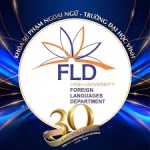Speaker
Description
Due to the Covid pandemic, schools in Vietnam were close until April 2022. The authority and teachers of foreign languages had to cope with a range of issues to maintain the fluent flow of education while switching their teaching and assessment to online mode. In terms of assessment quality, many school leaders advised teachers to be sympathetic to students and apply less stressful participation and assessment policies. Both the targets and methods of language assessment were significantly adjusted in most schools to foster students’ learning in the critical time. Noticeably, as the pandemic has now receded, the pandemic- related assessment modifications, such as funny online tests/quizzes, are still being used besides the pre-Covid assessment processes. In this context, it is critical to answer the question of what assessment alternatives English educators in Vietnam should take into considerations and whether those alternatives adopted according to the sympathetic approach to students’ contexts should be maintained.
This poster presentation capitalizes on the teachers’ assessment initiatives during Covid pandemic and the collaborative research attempts of Vietnamese NFLP, Cambridge Assessment and Happiness-based education to construct detailed formative assessment guidance to teachers of foreign languages in Vietnamese schools and suggest specific measures to create the happy assessment experience for learners, which can also be an approach to enhance interactiveness, an area receiving significantly less attention compared to other assessment qualities. Interactiveness in this presentation is the level that students' characteristics are considered in all the assessment steps. Instead of performing examinations with fright, taking tests after tests due to parental and social pressure, receiving scores without understanding them, students could participate happily in the meaningful assessment of their own language competence. Our suggestions for a future directions of language assessment in Vietnam focus on three areas: creating a localized assessment process, building a growth mindset for students in assessment, and practicing mindful reflection on assessment issues.
Key words: growth mindset, happiness-based education, localized assessment, mindful reflection.

